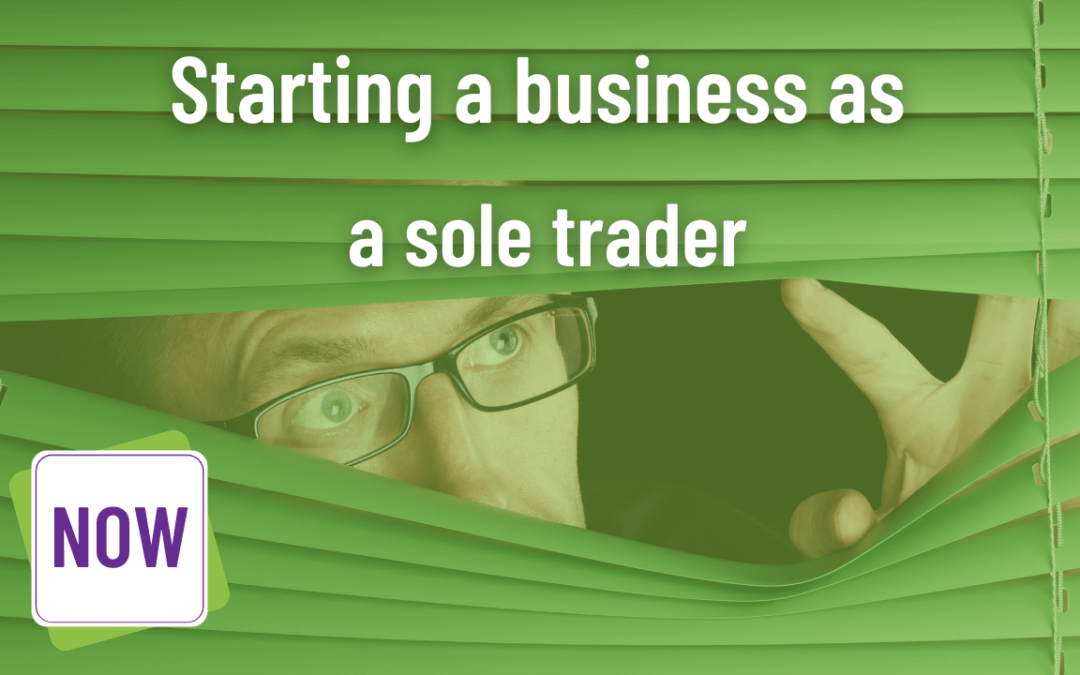Starting a business as a sole trader means lots of decisions to make and stuff to do. One of the first questions is whether to
- run the business as a sole trader
- to set up a partnership with others or whether to form a company
How you operate your business determines the taxes you pay and, furthermore your legal obligations.
A person operating as a sole trader is in business for themselves. This is the simplest way to run a business, though not always the best.
Registering with HMRC
If you operate as a sole trader , then register with HMRC for Self Assessment if your trading income is £1,000 or more. This is the total from all your sole trader businesses, not each one.
You may be already registered for Self Assessment, for example, you have property income then, no need to register again. Instead, simply complete the Self-Employment pages of the return to report your business income details.
If you are not registered for Self Assessment, then do so by 5 October following the end of the tax year in which you first became liable to register. For example, you start a business in 2024/25, your turnover was more than £1,000, the register for Self Assessment no later than 5 October 2025. Furthermore, you can register via the Gov.uk website
If you have previously been registered for Self Assessment, but did not file a return for the last tax year, then register again to reactivate your account.
Tax and National Insurance
Sole traders pay income tax on their profits. Your profits form part of your total taxable income. This becomes liable to income tax to the extent that it exceeds your personal allowance for the tax year. For 2024/25 and 2025/26, the personal allowance is £12,570. Income tax is charged at 20% on the first £37,700 of taxable income. Taxable income in excess of £37,700 up to £125,140 is taxed at 40%, and anything over £125,140 is taxed at 45%.
Where your adjusted net income exceeds £100,000, then your personal allowance is reduced by £1 for every £2 of income in excess of £100,000. If your adjusted net income exceeds of £125,140, say goodbye to your personal allowance.
National Insurance
Self-employed individuals pay Class 4 National Insurance if profits exceed £12,570. This is payable at a rate of 6% on profits between £12,570 and £50,270 and at 2% on any profits in excess of £50,270. Where your profits exceed the small profits threshold , no Class 4 National Insurance contributions are due.
However, and there;’s always a however you earn a National Insurance credit. This provides you with a qualifying year for state pension purposes. Sole traders with profits which are below the small profits threshold can opt to pay voluntary Class 2 contributions to build up their state pension entitlement. At £3.45 per week for 2024/25 (increasing to £3.50per week for 2025/26). Moreover, this is a much cheaper option than paying voluntary Class 3 contributions.
Tax and Class 4 National Insurance contributions must be paid by 31 January following the end of the tax year. Once the tax and Class 4 liability reaches £1,000, payments on account must be made for future tax years.
VAT
A sole trader needs to register for VAT if VATable turnover exceeds the VAT registration threshold, or is expected to do so in the next 30 days.
Records
As a sole trader keep records of your business income and expenses so you, or your accountant can work out your taxable profits. Have separate personal and business bank accounts to avoid personal and business expenses getting mixed up. You should also keep invoices, receipts, etc.
Summary
There is a lot to think about when Starting a business as a sole trader so stay in touch and informed.
Why not take advantage of my I Hate Numbers channel. This has exclusive weekly video content to help you reach and exceed those all-important targets. Don’t forget to subscribe, so that you can join countless others who have achieved huge successes. Moreover, follow my tips and comments. Together, we’ll make the numbers work for your business!
Still feeling lost or don’t know where to start, I Hate Numbers and our team at Numbers Know How will help get your business into a bright future.
So, what are you waiting for? Get in touch with us to help make your life easier and stress free. Contact us if you need help figuring out and sorting your numbers, creating your future financial story plans, your tax , payroll and other accounting and business matters
Plan it, Do it & PROFIT!
